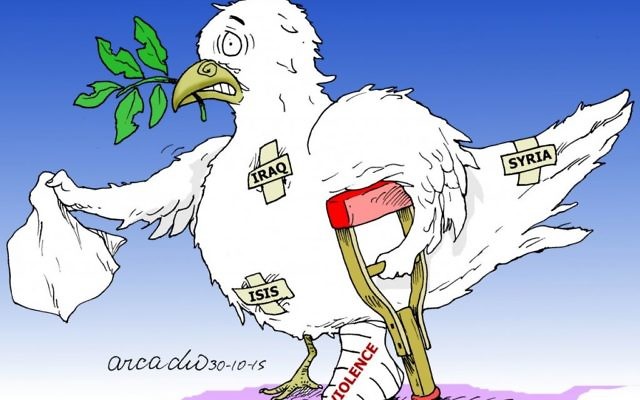Our View: Study Your History
Last week we delved into the dangers of distorting history, but the news that 50 U.S. Army Special Forces troops are being sent into Syria to “advise” anti-Assad, anti-Islamic State rebels is a reminder that ignorance of history is not bliss.
President Barack Obama had insisted he would never put American boots on the ground in Syria, and the White House denies that these advisory troops violate that vow, just as the remaining advisers in Iraq don’t violate the promise to pull the U.S. military out of that country.
The point isn’t that the president’s promises on foreign policy have proved less than reliable, although the continuing operation of a prison camp at Guantanamo Bay and the decision to keep 5,500 troops in Afghanistan beyond the end of the Obama administration make that argument. Instead, the point is that no matter how principled the goals, foreign policy that ignores or is ignorant of history is doomed.
Obama was hampered by a lack of foreign policy knowledge when he took office, and he has stubbornly resisted learning from experience. Thus, nearly seven years into his administration, he continues to find reality in conflict with his statements.
Ambassador Dennis Ross, who is speaking at The Temple on Monday night, Nov. 9, in a free event of the Book Festival of the Marcus Jewish Community Center, made the point in a recent interview that every administration starts with the certainty that it has important insights its predecessors have missed.
Ross saw that story repeated over and over again in his study of U.S. policy toward Israel, detailed in “Doomed to Succeed,” but he said the lesson applies across the Middle East and beyond.
Obama took office with the certainty that he had a better way to deal with the world, whether that meant reaching out to Muslims, engaging with Iran, operating as one nation among many instead of the world’s leader, or doing more talking and less fighting.
The president paid no attention to the lessons of history, such as:
- Despite our desire not to be the world’s policeman and our record of sometimes catastrophic errors in foreign affairs, the United States is the essential nation in any effort to turn chaos and killing into peace and hope. No other country has the strength and the willingness to act for the greater good, and no other country has the ability to earn nations’ trust.
- We can’t compel allies to provide positive leadership by withdrawing and leaving a power vacuum. If we don’t take the lead, our allies step back instead of stepping up, and bad actors jump into the void.
- We can’t win friends and influence nations with noble intentions. We are judged by our actions.
A year away from the election, we’re sure the next president will look at the effects of Obama’s policies — hundreds of thousands of dead Syrians, millions of refugees from the Middle East, an emboldened Iran, expanded adventures by Russia, Arab frustration and oppression after the failures of the Arab Spring, the possible outbreak of the Third Intifada, the seemingly indiscriminate use of drone warfare — with confidence that he or she will be smarter and do things better.
Our fear is that the resulting policies will reflect a desire to be different rather than an analysis of what’s right. That’s one of the frustrating lessons of history.




comments